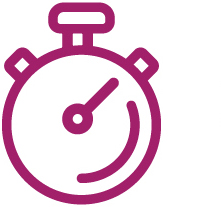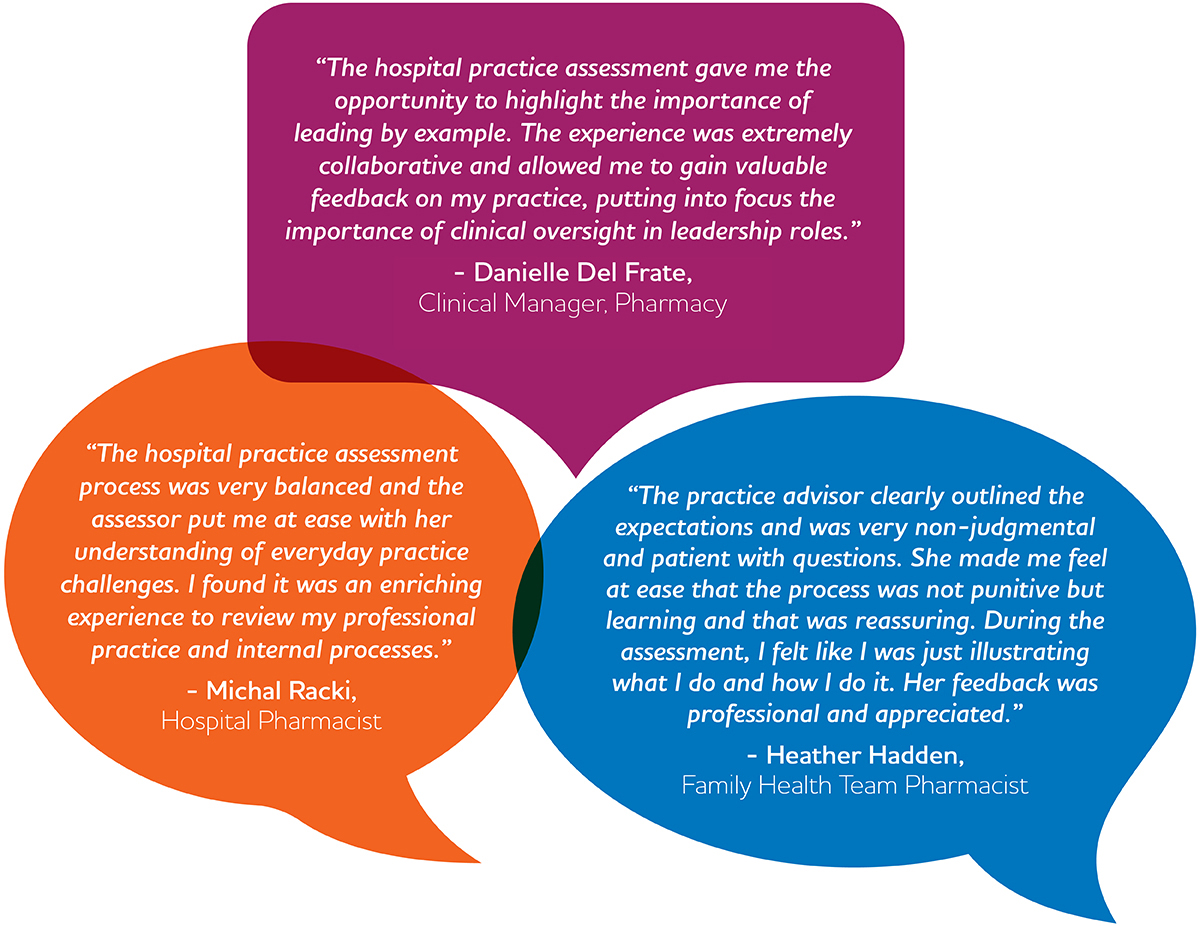In January 2021, the College launched practice assessments for Part A pharmacists working in hospital and other healthcare facilities, including family health teams and long-term care. This article below answers some common questions the College receives about these assessments.
Why Are Practice Assessments Necessary?
Practice assessments are a part of the College’s Quality Assurance Program and are an evaluation of a registrant’s ability to practice to the standards of the profession. The transition to assessments at the individual’s place of practice reflects evolving public and patient expectations that the College regularly engages with pharmacists and pharmacy technicians to ensure that safe and appropriate patient care is being provided.
All Part A pharmacists, regardless of practice setting, participate in regular practice assessments. While the assessment processes are similar for registrants working in community and hospital or other healthcare facilities, each type of assessment focuses on specific criteria and activities that are relevant to the place of practice.
Quality assurance activities are designed to help pharmacy professionals enhance their skills and knowledge, validate and reinforce that their practice is meeting standards, and identify areas for improvement in order to support better patient health outcomes.
What Happens Before a Practice Assessment?
Pharmacists are provided with advanced notice of a practice assessment via email, typically 2-3 months in advance. They are encouraged to use the assessment criteria to do a self-assessment of their practice before the assessment takes place.
The practice advisor will advise the registrant whether the assessment will take place remotely via video conferencing platform. If the assessment is remote, the pharmacist will be requested to submit specific documentation ahead of time. This documentation includes a number of patient cases from their practice to help demonstrate how they solve drug therapy problems for patients–these will be discussed during the assessment.
What Is Being Assessed?
It’s important to know that this is not an assessment of clinical or therapeutic knowledge. The focus of the practice assessment is on the individual’s process, specifically using the four domains of the assessment criteria: Patient Assessment, Decision Making, Documentation and Communication.
For registrants where their practice is particularly unique or specialized, the practice advisor will work with them to ensure that the conversation addresses the four domains while also being relevant to the care provided by the pharmacist.
What Happens During an Assessment?
During a practice assessment, practice advisors use the practice assessment criteria to evaluate a registrant’s practice. The practice advisor uses a peer-to-peer approach, using their experience in hospital and other settings to help facilitate these discussions.
Throughout and following the assessment, the practice advisor provides feedback outlining areas of practice where the pharmacy professional is doing well and meeting standards as well as areas where there is an opportunity for improvement. They offer support through coaching and conversation, pointing out opportunities to enhance practice, probing the thinking behind certain actions and decisions, and indicating where to access helpful resources. With an emphasis on educating, the goal of the practice assessments is to increase adherence to practice standards, help pharmacy professionals use their full scope, and ultimately support optimal health outcomes.

The goal of the practice assessments:
• increase adherence to practice standards
• help pharmacy professionals practice to their full scope
• support optimal health outcomes for patients
What Happens if the Standards Are Not Met During the Assessment?
If the pharmacy professional does not meet the standards indicated on their first assessment, they are given the opportunity to spend time with a quality assurance (QA) coach. This coach is not a College staff member, but rather a peer who can provide support specifically in areas where there is room for improvement. This half-day interactive session is designed to enhance the professional’s practice and the care that is provided to patients. Following the session with the QA coach, the pharmacy professional will be reassessed by a different practice advisor.
If there are still significant areas of practice that require improvement following this second assessment, a QA assessment will take place and the results will be sent to the QA Committee for consideration. The QA Committee determines whether remediation is required to help the professional meet standards, always recognizing that patient safety is the first priority.
The results of a practice assessment are confidential and are not shared with employers, owners, colleagues or any College committee, other than the QA Committee.
QUICK FACTS ABOUT HOSPITAL PRACTICE ASSESSMENTS

2-3 hours on average to complete

13 performance indicators

51 assessments completed in Q1 2021
WHAT WE HEARD FROM PHARMACISTS WHO HAVE COMPLETED PRACTICE ASSESSMENTS














